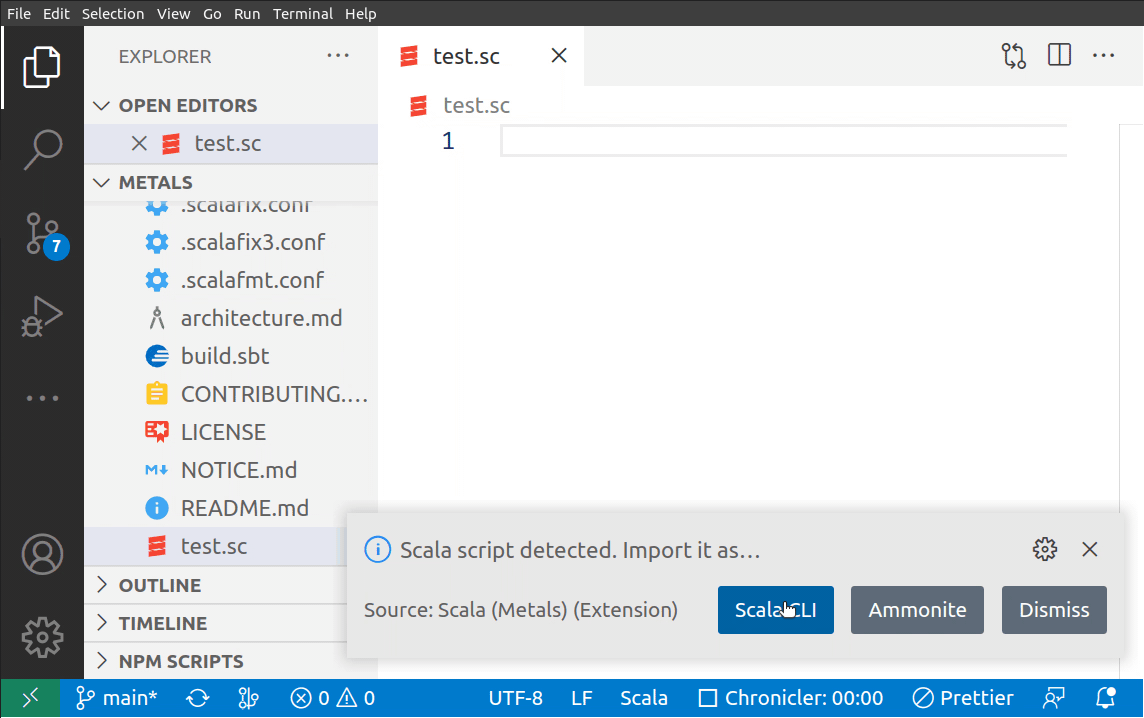Scripts support
Working with a script
Whenever, Metals opens a script file with *.sc extension, but only when it's
not *.worksheet.sc or a build server has not already started for it, users
will be prompted to use Scala CLI to power
the script.

Scripts are usually used for smaller programs and the main difference is that statements can be put on top level without a need for additional objects or methods.
Once a user has accepted using Scala CLI Metals will also suggest to import all newly opened scripts automatically or to always to do that manually.
Scala CLI will start a build server in the background that will be able to compile your code and provide Metals with all the necessary information.
Scala CLI scripts can also be used standalone when Scala CLI generated .bsp
directory after running scala-cli compile or scala-cli setup-ide on that
script.
Advanced information
Additionally, advanced users can start the underlying build server manually with
Metals: Start Scala CLI BSP server (scala-cli-start). They will also be able
to stop it with Metals: Stop Scala CLI BSP server(scala-cli-stop). These
commands can be used for more fine grained control when to turn on or of
scripting support. This is especially useful since the additional build server
running underneath can take up some additional resources.
If the script is in a dedicated folder, by default we will treat all the scripts and scala files in that directory as ones that can be used together. So you would be able to import method and classes from those files. However, if the script is contained within a directory that also contains other sources, that script will be treated as a standalone one in order to avoid flaky compilation errors coming from normal files in the workspace.
Current limitations can be found:
For troubleshooting take a look at the FAQ